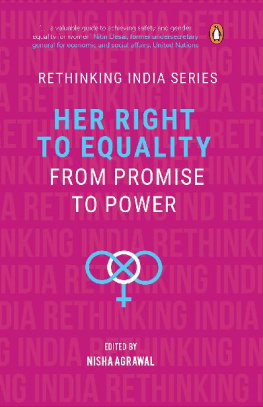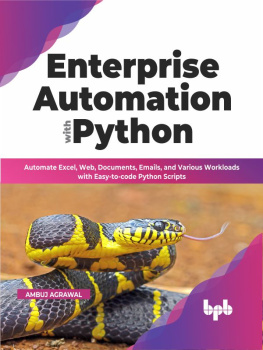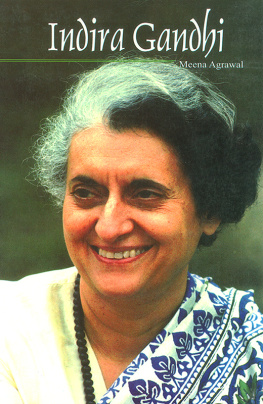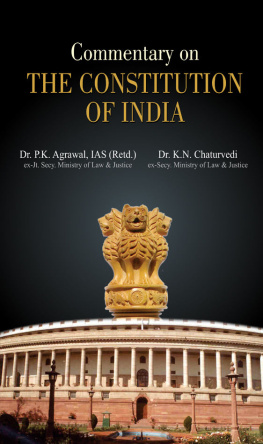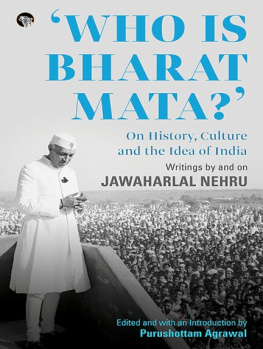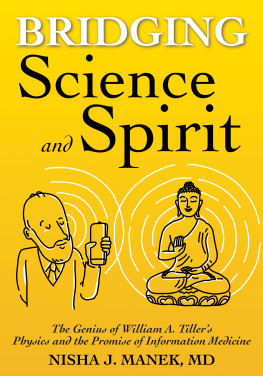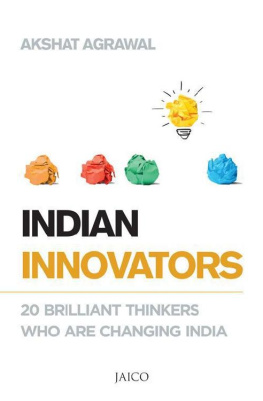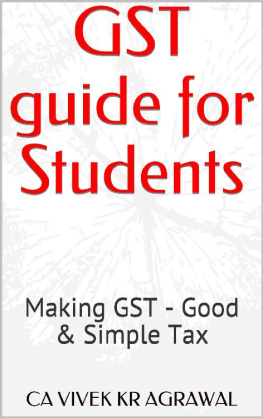NISHA AGRAWAL
HER RIGHT
TO EQUALITY
Rethinking India 6
From Promise to Power
Contents
RETHINKING INDIA
Series editors: Aakash Singh Rathore, Mridula Mukherjee, Pushparaj Deshpande and Syeda Hameed
OTHER BOOKS IN THE SERIES
Vision for a Nation: Paths and Perspectives
(Aakash Singh Rathore and Ashis Nandy, eds)
The Minority Conundrum: Living in Majoritarian Times
(Tanweer Fazal, ed.)
Reviving Jobs: An Agenda for Growth
(Santosh Mehrotra, ed.)
We the People: Establishing Rights and Deepening Democracy
(Nikhil Dey, Aruna Roy and Rakshita Swamy, eds)
The Shudras: Vision for a New Path
(Kancha Ilaiah Shepherd and Karthik Raja Karuppusamy, eds)
Advance Praise for the Book
The Constitution of India prohibits discrimination on the grounds of gender. India is also a signatory to the UN Convention on the Elimination of All Forms of Discrimination against Women (CEDAW) which requires not just formal non-discrimination but also equality of opportunity and affirmative State action. This book is a valuable guide to achieving safety and gender equality for women at home and in social, political and economic life. It provides not just an analysis of the present situation but also specific policy and institutional proposals and a vision for a future where the principle of fraternity will lead to equality and liberty for all.Nitin Desai, former undersecretary general for economic and social affairs, United Nations
Harvesting existent knowledge as a way of shaping the future is a valuable ideaespecially in times like these, where the globe and its constituents are looking for ideas to rebuild the future. Her Right to Equality: From Promise to Power fulfils exactly this need, covering a heterogeneous array of themes addressed by those who have walked the walk.Devaki Jain, feminist economist and author, The Brass Notebook
A piercing and insightful look into the continued systematic oppression of women in India. A must-read for anyone who believes that women in India deserve better and more.Alankrita Shrivastava, award-winning director, Lipstick under My Burkha and Dolly Kitty Aur Woh Chamakte Sitare
Her Right to Equality is a journey of hope that reflects on the unfulfilled promise of equality enshrined in the Indian Constitution seventy years ago. The book proposes transformational solutions to achieve equality and dignity for all Indians. The essays address succinctly discriminatory gender norms within households, in economic spheres and in political spaces, and provide important lessons that resonate for women across the globe. The inequalities that women still face in India are global in nature, as are the voices of hope and resilience from women across the subcontinent. This book is a window into discriminatory legal, political, economic and social frameworks, and the actions that we will need to undertake individually and collectively to build a lasting culture of mutual respect and equality. I applaud the authors rejection of a too-slow march to progress, and echo their siren call for urgent disruptive change that will shatter patriarchal norms and recreate the gender-equal world that we all deserve.Winnie Byanyima, executive director, UNAIDS
For my parents
Series Editors Note
Psychologists tell us that the only true enemies we have are the faces looking back at us in the mirror. Today, we in India need to take a long, hard look at ourselves in the mirror. With either actual or looming crises in every branch of government, at every level, be it central, state or local; with nearly every institution failing; with unemployment at historically high rates; with an ecosystem ready to implode; with a healthcare system in a shambles; with an education system on the brink of collapse; with gender, caste and class inequities unabating; with civil society increasingly characterized by exclusion, intolerance and violence; with our own minorities living in fear; our hundreds of millions of fellow citizens in penury; and with few prospects for the innumerable youth of this nation in the face of all these increasingly intractable problems, the reflection is not sightly. Our true enemies are not external to us, not Pakistani terrorists or Bangladeshi migrants, but our own selves: our own lack of imagination, communication, cooperation and dedication towards achieving the India of our destiny and dreams.
Our Constitution, as the preamble so eloquently attests, was founded upon the fundamental values of the dignity of the individual and the unity of the nation, envisioned in relation to a radically egalitarian justice. These bedrock ideas, though perhaps especially pioneered by the likes of Jawaharlal Nehru, B.R. Ambedkar, M.K. Gandhi, Maulana Azad, Sardar Patel, Sarojini Naidu, Jagjivan Ram, R. Amrit Kaur, Ram Manohar Lohia and others, had emerged as a broad consensus among the many founders of this nation, cutting across divergent social and political ideologies. Giving shape to that vision, the architects of modern India strived to ensure that each one of us is accorded equal opportunities to live with dignity and security, has equitable access to a better life, and is an equal partner in this nations growth.
Yet, today we find these most basic constitutional principles under attack. Nearly all the public institutions that were originally created in order to fight against dominance and subservience are in the process of subversion, creating new hierarchies instead of dismantling them, generating inequities instead of ameliorating them. Government policy merely pays lip service to egalitarian considerations, while the actual administration of justice and implementation of laws are in fact perpetuating precisely the opposite: illegality, criminality, corruption, bias, nepotism and injustice of every conceivable stripe. And the rapid rise of social intolerance and manifold exclusions (along the lines of gender, caste, religion, etc.) effectively whittle down and even sabotage an inclusive conception of citizenship, polity and nation.
In spite of these and all the other unmentioned but equally serious challenges posed at this moment, there are in fact new sites for sociopolitical assertion re-emerging. There are new calls arising for the reinstatement of the letter and spirit of our Constitution, not just normatively (where we battle things out ideologically) but also practically (the battle at the level of policy articulation and implementation). These calls are not simply partisan, nor are they exclusionary or zero-sum. They witness the wide participation of youth, women, the historically disadvantaged in the process of finding a new voice, minorities, members of majority communities, and progressive individuals all joining hands in solidarity.
We at the Samruddha Bharat Foundation proudly count ourselves among them. The Foundations very raison dtre has been to take serious cognizance of Indias present and future challenges, and to rise to them. Over the past two years, we have constituted numerous working groups to critically rethink social, economic and political paradigms to encourage a transformative spirit in Indias polity. Over 400 of Indias foremost academics, activists, professionals and policymakers across party lines have constructively engaged in this process. We have organized and assembled inputs from jan sunwai s (public hearings) and jan manch s (public platforms) that we conducted across several states, and discussed and debated these ideas with leaders of fourteen progressive political parties, in an effort to set benchmarks for a future common minimum programme. The overarching idea has been to try to breathe new life and spirit into the cold and self-serving logic of political and administrative processes, linking them to and informing them by grass-roots realities, fact-based research and social experience, and actionable social-scientific knowledge. And to do all of this with harmony and heart, with sincere emotion and national feeling.



